|
Dear Plymouth,
It’s good to be entering the season of Lent with all of you. I consider this season a time of curiosity. I am in awe of the beauty of our separate and shared lives. I am glad to be journeying with you and this congregation this year. I love joining you in homes, breaking bread together, sharing our lives, taking ourselves and our values into the public square, and engaging in important local issues. It’s fun to share stories about our personal lives- our favorite T.V. shows, what makes our professions important, and talking about what Jesus means to you! Who is Jesus to you and how does he show up in your faith? I think about this a lot. Jesus often invites and calls me into community. Sometimes, it is a familiar community and sometimes an unrecognizable one- but it is always community. INVITATIONS for you into Community this Lent: The Immigration Ministry Team invites you to join the Fort Collins community at the City Council Meeting on Tuesday, February 20. We will be rallying for peace and love and asking for a Cease Fire Resolution to be passed so that our city can join the list of other cities in the U.S. asking for the same thing. We will meet in the parking lot at 5:40 pm at the City Hall [the patio outside the main door of the City Council Chambers, 300 Laporte Ave]. I have signed up to talk at the Rally. The youth group will be making us large red hearts to wear around our necks as a sign of solidarity as we all witness the horror that is happening in the West Bank–Palestine–Jewish, Christian, Muslim, and others - our vision must be to protect and love and call for peace here and around the world. The Interfaith Council of Fort Collins invites you to join a suicide prevention event on Thursday, March 7, 9-10:30 am at Plymouth! I also invite you to reach out to me if you want to have coffee or sit together and explore your faith during this time of Lent, this time of deepening. I am easy to find. My email is marta@plymouthucc.org and my cell phone is: 719-306-4037 If you have any questions about these events don’t hesitate to contact me. Love and Peace this Lenten Journey, Marta 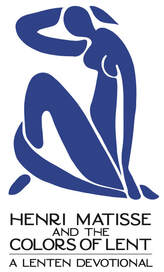 As promised, we’ve lined up some great offerings to help enrich your spiritual journey during Lent, which begins on Ash Wednesday…in just a week! We begin on February 14 with a simple soup supper at 6:15 and a service at 7:00 that includes the imposition of ashes, a sign of penitence. I invite you to join us in several ways during this season: PLYMOUTH READS the Gospel According to Mark This is a perfect opportunity to dust off your Bible and encounter the earliest of the four gospels. It’s also perfect for you if you consider yourself a biblical newbie! You’ll receive a bookmark in your bulletin this Sunday with the reading schedule. Each week, Marta and I will craft a Wednesday email for you with some focus questions on the week’s reading, a visual image, and some suggestions for spiritual practice. We also invite you to join Plymouth’s Facebook group, where we will have online discussion: http://facebook.com/groups/plymouthconnection If you’d like an online Bible, here are two recommended translations:
LENTEN DEVOTIONAL: Henri Matisse and the Colors of Lent This wonderful resource from SALT Project invites you into the experience of visual theology through the lens of Henri Matisse. We’ll be sending you both the adult and family-friendly versions of this devotional booklet by email soon. (We’ll also have some printed copies at the church.) Sue Rutherford and the Forum team will be using this devotional as the basis for forums during Lent, and there will be an intergenerational component to this as well. I hope to see you on Ash Wednesday, as we begin our Lenten journey together! Deep peace, It’s January 2, 2024.
Are you one of those people who make New Year resolutions, or do you avoid doing so because they endure for about a week, leaving you feeling guilty, frustrated, and ashamed? I’m in the second category. It just seems like there is always something that gets in the way at this time of year. Perhaps it is fatigue from the Christmas rush or maybe it’s that there seems nothing especially “special” about the coming of a new year that necessitates making changes. (Do I sound like a New Year Scrooge? Humbug!) If you’ve launched a resolution this week, please don’t let me deter you! Though perhaps a few intentions (not resolutions!) are worth considering. I’m not necessarily good at these, but here are some ideas I’m toying with:
For me, a key time for personal transformation is the season of Lent, which is coming up in about seven weeks, on February 18. (It’s definitely early this year!) Lent is a fixed period that invites us into a time of spiritual reflection. Unlike New Year’s Day, it gives us a five-week span to reflect on ways we need to follow Jesus more closely. It isn’t a day, but rather a whole season. And it provides an annual reminder to ask ourselves what is of deepest importance to us and how we want to bend and shape our lives to a more Christlike form. Jesus has an amazing 40-day wilderness quest to help him clarify his mission and ministry, and during Lent we, too, can use intention to do the same. We have some interesting opportunities for spiritual growth that we’ll be sharing with you as Lent approaches. In the meantime, hang in with your resolutions if you’ve made them. And if you haven’t, don’t worry; you’ll have your chance for change in seven weeks’ time. As we transition from Christmastide into Epiphany may the light of Christ shine within you and all around you, and may you catch a glimpse of the light emanating from others as well. Blessings! For some, the week before Lent can be crunch time to narrow down the thing they will give up in this upcoming penitential season. A small sacrifice (or large one, if you're feeling particularly masochistic this year!) to experience the withdrawal of an earthly pleasure in hopes of attaining a greater focus on the spiritual. This forty-day respite from one's personal emotional crutches could be characterized, albeit dramatically, as a "farewell to the flesh."
But is it really necessary in order to find the desired equilibrium between the earthly and spiritual? True confessions, I've never been very good at this one! But the Lenten invitation to introspection and meditation in reference to Jesus' forty-day journey in the wilderness I've always found to be a cherished spiritual practice. I hope you accept this invitation as well. In worship life, we hear and see visceral and intentional variations to our services. Chancel paraments along with the minister and choir's stoles take on a purple hue reflecting the age old custom of liturgical church tradition. The music becomes a bit more introspective to encourage a more prayerful and meditative inner life. Our modern day journey culminates in the solemnity of Holy Week: the agape meal we share on Maundy Thursday to the Good Friday Musical Meditation and Prayer. A time of remembrance and reflection. I look forward to walking this Lenten journey with you. Mark Breathe in, breathe out. Which is better? More necessary? Neither, of course, both are necessary to life. If you try to inhale and hold, what happens? A sensation, a force, shows up that wants something else. The held breath wants a complement, the CO2 buildup inspires a tension, a drive of energy to exhale it, to complement the inhale. I’ve used this breathing cycle illustration in my preaching recently and will again this Sunday. It is simply the best teaching tool that I know of for connecting people with the basic truth of polarities. Gestalt therapist Barry Johnson is credited with originating a systemic lens called polarity thinking that tracks the principle of complementarity. It’s a systemic view that helps us see the plot of the story of a person, a relationship, or a collective in terms of poles and to then move the story in the direction of an integration of poles that generates vitality and health. Polarities are simply the base interdependent energies or values in a given issue or system. Like the inhale and exhale, they do not resolve and are not "either/or" choices. Polarity thinking involves "both/and" thinking in an attempt to create a virtuous cycle (inhale and exhale) where both energies are leveraged for the greater goal (adequate oxygen + lowered CO2 = vitality). When a pole (value) is neglected and feared while its opposite is idolized and inflated, you have a polarization that leads to a vicious cycle. For example, if the common good and shared responsibility are always pejoratively called “communist” and individual freedom and choice are always seen as pure and good (like the political organization Freedom Works does), the outcome will be a vicious cycle that leads to diminished resources for most (and eventually all) in a disorganized and/or dog-eat-dog world. The opposite, of having only conformity and the collective, will also produce a vicious cycle. We need both freedom and responsibility, both the individual and the group. It is always a matter of AND, never "versus." This pole AND that pole in search of a virtuous cycle. Why share about this? Because solutions to our personal and collective struggles rarely come from neglecting or demonizing one of the poles or values. Because when we see others, ourselves, and collectives from this point of view, we can see them more compassionately and creatively as we see them trying to meet their needs or express their values, but tragically and painfully excluding something out of fear and shadow projection. Polarization is a sign of a system poorly and painfully meeting its needs through exclusion. I believe the Good News of the Gospel is profoundly inclusive. The truth that sets us free and that fills us to the brim (our Lenten theme) is a truth that integrates energies, poles, and values for the purposes of Life. See if in your Lenten reflections about missing the mark in your life, in our church, or in our nation if there might be an active polarization with a dominant pole and a demonized or neglected pole. JT AuthorThe Rev. JT Smiedendorf has been a UCC minister since 2001, serving churches in Oregon, Colorado, Wyoming, and Washington. He has a particular passion for reclaiming the earthy, embodied, and experiential aspect of Christian spiritual practice. He and his wife Allison are co-founders of The Sanctuary for Sacred Union, an inter-spiritual initiative, and he is currently earning a postgraduate Certificate in Psychedelic Therapies and Research. Read more about JT here. What does it feel like to be alone? Sometimes it’s a relief and sometimes it’s not. Many of us have known that all too well during the two years of pandemic. None of us asked for this time by ourselves or with a circle of a few other people. For some of us, loneliness has been emotionally devastating. At various points in the past two years, we’ve been deprived of seeing family, worshiping with others at Plymouth, sharing a hug with a friend. At last Sunday’s first face-to-face services the feeling of joy at being back together in worship was palpable. It is so different to celebrate communion together with others in the same room, to have kids come forward for the time with children, to preach to human beings in the pews, rather than the one eye of the video camera. And it was great to catch up with people at coffee hour and in the adult ed. forum! What was it like for you if you joined us in person? See an old friend? Make a new one? Greet some of the visitors we had at each service? Experience the collective voice of singing a hymn? None of us knows what the future holds in terms of the behavior of Covid, but for now, I think we should live and worship with gusto. The musical term “con brio” means with spirit or with vigor, and that’s how I plan to walk through Lent this year, relishing the presence of our congregation in worship. I’m also aware the Lent can be a time for sabbath, for resting in God. I wonder…are there ways of sabbath that can be done “con brio?” We are using a Lenten devotional and worship materials called “Filled to the Brim,” which seems a little counterintuitive for the way most of us observe this season that is meant to help us deepen our faith. Some of us see Lent as a lead-in to Good Friday and Jesus’ self-sacrifice on the cross, but there is another way to view this 40-day season. Jesus spent 40 days alone in the wilderness on something like a vison quest that prepared him for his brief and incredibly influential ministry. What if we approach Lent as a time in the wilderness when we are challenged to go a bit deeper in our faith than we usually do? Maybe do a few things (or refrain from doing things) that stretch us slightly out of our comfort zones? What might that mean for you? Using the Lenten devotional booklet? Attending worship every Sunday? Finding a few more minutes each day to spend in prayer and contemplation? Stretching to do something for another person, even someone you don’t know? I wonder if as we reflect on Jesus’ forty days of wilderness wandering — alone — if we might find inspiration to work with the images of aloneness and companionship during Lent. How might our intention of spending time intentionally be a form of sabbath? What if we embrace where we are right now with enthusiasm and come back together as a community of faith? What changes might be possible in the way you approach and live your faith? What if we can find sabbath in our togetherness? Lent is a season full of possibility. May it be fruitful for you! Shalom! AuthorThe Rev. Hal Chorpenning has been Plymouth's senior minister since 2002. Before that, he was associate conference minister with the Connecticut Conference of the UCC. A grant from the Lilly Endowment enabled him to study Celtic Christianity in the UK and Ireland. Prior to ordained ministry, Hal had a business in corporate communications. Read more about Hal here. 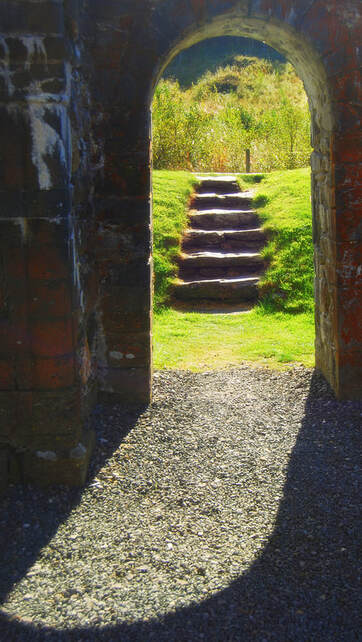 Photo: J.A. Ferguson Photo: J.A. Ferguson Each morning we stand on the threshold of a new day with its possibilities for change. Some changes we celebrate. Others we mourn or regret. God is with us in each and every change. Moses stood at a threshold of change as he gave his farewell address to the Hebrew people before sending them across the Jordan River into the land of promise. He led them for forty years, out of slavery in Egypt and through the wilderness pilgrimage. Yet, he could not go with them across the Jordan. At one hundred and twenty, he was on the threshold of death, and God gave the people a new leader, Joshua, for the new pilgrim journey. Change! At a very tough time. Moses told the people that God would be with them as they encountered enemies in the new land. Don’t we often think of “change” as an enemy? I do…it can be jarring when I want to be comfortable, it can engender hard work when I think I am tired to the bone, it can stir up emotions I don’t want to feel. Yet change has also provided the threshold for the most life-giving events that have blessed me beyond measure. Not that I always recognize the blessings immediately. That can take a while. Change also teaches me that I am not in control. I am not the Queen of the Universe that someone forgot to consult. (And would I really want all that responsibility anyway?!) I am a pilgrim on a journey through this life with the Holy One as my guide. I make choices, yes, however, my highest calling is to respond to the calling of God that may lead me into unknown territory, to thresholds that I did not expect. As a congregation we have been called to face SO many changes over the last year. I know that has been exhausting and still is as we look for the light at the end of the pandemic tunnel. We have also faced church staff changes. Three of our staff who were with us a year ago, Mark Lee, Mandy Hall and Yendra Tenzca, have answered God’s call to work and ministry in settings that may have surprised them as much as us. And now, we face another staff change with the departure of Carla Cain. I hope you join me in praying for Carla as she moves toward new ministry opportunities back in Iowa and give thanks for the many gifts in ministry that she gave Plymouth in her time here. Our Leadership Council chose a theme for Plymouth this year that is telling, "Standing at the Threshold: The Pilgrim Journey Continues." Moses would have understood this theme when he addressed his people. I leave you with his words – adapted just a bit by me. Be strong! Be fearless! Don't be afraid and don't be scared by your enemies, [by change], because the [Holy One] your God is the one who marches with you. He won't let you down, and [She] won't abandon you. (Deuteronomy 31:6 from the Common English Bible). With you on the journey, “Is not this the fast that I choose, to loose the bonds of injustice…. to share your bread with the hungry…?” (Isa 58:6-7) … “The sacrifice that is acceptable to God is a broken spirit//a broken and contrite heart” … (Psalm 51.17) … “ tear your hearts and not your clothing” (Joel 2.13) 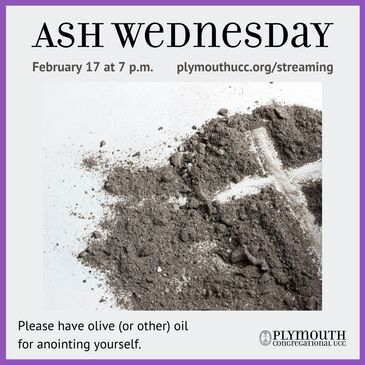 In the scripture texts above, two prophets and a psalmist prophets and a psalmist call us to begin the season of Lent on Ash Wednesday. They call us to ancient rituals and spiritual practices of repentance. To repent is to come to God with a need for change, with, hopefully, a humble need to turn around in some way and get back on a better path of relationship with the Holy One. Repentance does not mean beating ourselves up with unproductive guilt. It means opening our hearts to transformation. What needs transforming in your life, in your heart and mind this year? How do we enter the repentance of Lent this year – after the pandemic and political trauma of the last 11 months – heeding the call of the prophets and the psalmist to fast with social justice, to bring a contrite heart ready to be torn open with Love? We find time to be with God and one another in gentle, humble ways. We lay down expectations of what needs to happen next and learn to wait for the surprising ways the Holy shows up to transform us from the inside out. Waiting with patience for “a slow wind to work words [and works] of love around us as an invisible cloak to mind our lives" as the poet, John O’Donahue, reminds us to do in his poem, “Beannacht.” We go slow and steady as we continue to move through this tedious pandemic, as one by one we are vaccinated, as bit by bit we are able to come back together in community. We slowly, steadily and faithfully repair the breaches of racism, incivility and hatred in our country with education, understanding and communication. To help you in your slow and patient journey through Lent this year:
May we all find ways to answer the call to Lent, to open our hearts to God’s surprising changes, to turn around and find a new way home to our center in the heart of the Holy One. With you on the journey, AuthorThe Rev. Jane Anne Ferguson, Associate Minister, is a writer, storyteller, and contributor to Feasting on the Word, a popular biblical commentary. She is also the writer of sermon-stories.com, a lectionary-based story-commentary series. Read more 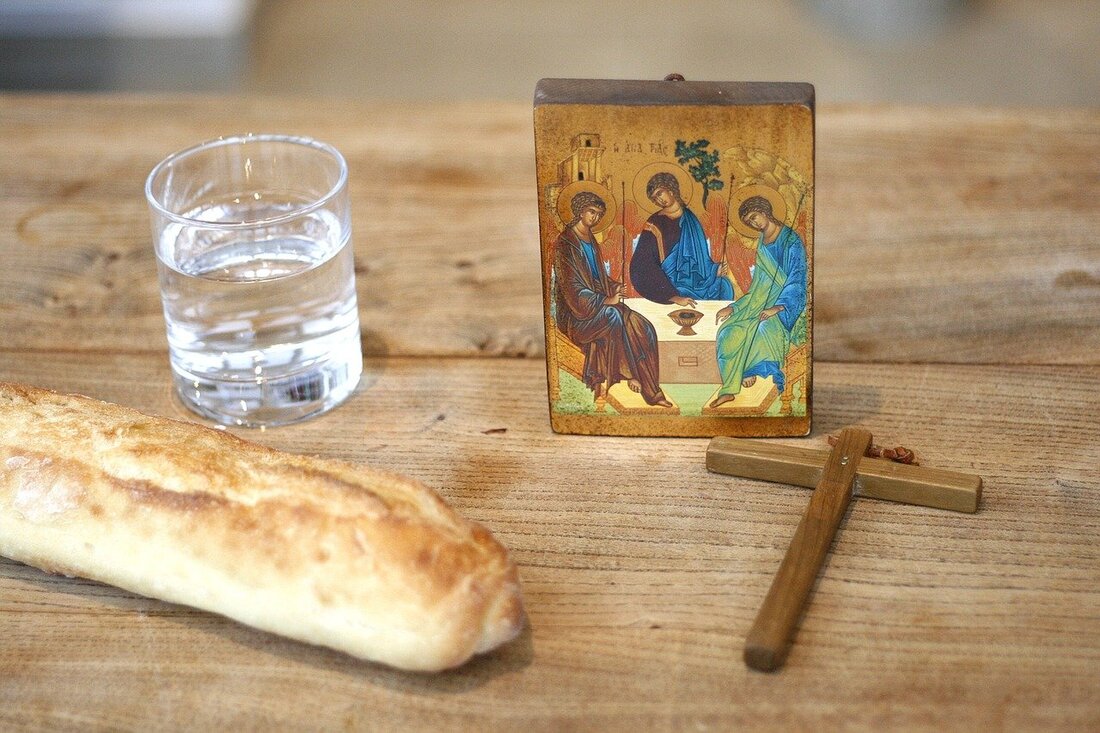 Image by Prierlechapelet from Pixabay I love the tongue-in-cheek comment from our Sunday Forum Ministry Team: “Haven’t we been doing Lent for a year now? I’m tired of giving stuff up!” Yep…it sure feels that way, but for most of us, we’ve been giving up stuff perhaps without much spiritual benefit. So, maybe don’t give anything up for Lent this year! Maybe this season of spiritual deepening (which starts in only 8 days!) can be an opportunity to offer yourself something more nourishing than further deprivation. If there is one thing none of us need this year, it’s a more-abrasive hair shirt or flagellum! Soon, you will receive a Lenten devotional in the mail from Plymouth. Like our Advent devotional booklet, this comes from a group of young clergywomen called A Sanctified Art. I hope that you enjoy it and engage with it! One of our members, David Petersen, a renowned Old Testament scholar and formerly dean of Candler School of Theology at Emory University, will begin offering a weekly reflection on the reading from the Revised Common Lectionary. You’ll be able to find it online at plymouthucc.org/lent2021 as the season begins. We are amazingly fortunate at Plymouth to have such scholars among us! If you are feeling in a crafty-prayerful frame of mind, I invite you to join me for a two-part Prayer Bead workshop, February 20 & 21. We’ll learn how to create a strand of Anglican Prayer Beads (all tools and materials provided…a $43 materials fee is requested) on a Saturday morning and then pray with them and write our own prayers on Sunday afternoon via Zoom. You can learn more and sign up at plymouthucc.org/adults (I’ll also be doing beads with our Middle School and High School Youth Groups.) And the aforementioned Forum Ministry Team has great plans for you on Sunday mornings in Lent at 9:00 a.m. via Zoom. Their first foray on February 21 is an exploration of the themes of Lent (wilderness, searching for God, grief, repentance) have been a part of our pandemic journey. The following week, Wayne Carpenter will offer “How to Be Sick,” an exploration of chronic illness, its losses and discoveries. As I invite you to engage your spiritual journey fully, I leave you with this offering from the cycle of Celtic prayers I use with Anglican Prayer Beads: You are the love of each living creature, O God. You are the warmth of the rising sun. You are the whiteness of the moon at night. You are the strength of the waves of the sea. You are the life of the growing earth. Speak to me this day, O Lord, speak to me your truth. Dwell with me this day, O Lord, dwell with me in love. Amen. Blessings to you! P.S. Our Ash Wednesday service will be on Zoom at 7:00 p.m. on February 17…look for an email invitation. AuthorThe Rev. Hal Chorpenning has been Plymouth's senior minister since 2002. Before that, he was associate conference minister with the Connecticut Conference of the UCC. A grant from the Lilly Endowment enabled him to study Celtic Christianity in the UK and Ireland. Prior to ordained ministry, Hal had a business in corporate communications. Read more about Hal. 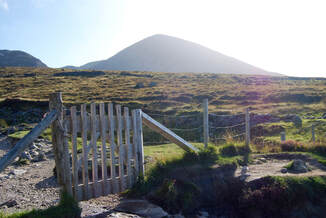 Photo: J.A. Ferguson Photo: J.A. Ferguson Christ with me, Christ before me, Christ behind me, Christ within me, Christ beneath me, Christ above me, Christ at my right, Christ at my left, Christ in the heart of everyone who thinks of me, Christ in the mouth of everyone who speaks to me, Christ in every eye that sees me, Christ in every ear that hears me. From St. Patrick’s Breastplate I write to you today sitting at my kitchen island as we all hunker down further into this time of self-isolation and quarantine. I just heard that my gym was closed for 30 days and my acupuncturist for 1-2 weeks. We will hold staff meeting today by Zoom conference calling. It seems there is another confirmed case of Covid-19 in Loveland. (Please pray for those involved! You can read about it here at the Larimer County website.) These are different, interesting, anxiety-producing times. Yet life goes on...And good things happen! Today we will celebrate Christopher Chorpenning’s 19th birthday with pizza and Guinness and Torte della Nona, our favorite Italian dessert! (Hal is making it as I write....wish I could insert the wonderful smells of custard and toasted pine nuts into this reflection!) Yesterday I walked in the sunshine and took pizza to a friend who had just moved and broken her hand in the process. Today we are receiving moisture that we always need in Colorado. What are you celebrating today? The quotation above from St. Patrick’s Breastplate, an ancient Irish loricaor hymn, reminds me that God in Christ is always with us, protecting, accompanying, healing. I have prayed with it often. The Breastplate is a very long 5th century hymn in the style of Druidic poetry that is attributed to St. Patrick. Each verse begins with the phrase, “I arise today” or “I bind to myself today” and calls for the divine protection of God in the Trinity, God as Creator, God as Christ, God as Spirit. (You can read the whole of it at this link.) Legend has it that St. Patrick sang this when an ambush was laid against him and his followers by the High King Learyto prevent him from going Tara to share the faith at the High King’s seat of power. A miracle happened and it appeared to those lying in ambush that St. Patrick and his monks were wild deer with a fawn following them. (Thus, the hymn is also called, The Deer’s Cry.) They were protected because know that Patrick and his followers shared the faith all across Ireland. I invite you today to and in the coming days to use the portion of St. Patrick’s hymn quoted above as a prayer of protection when you are anxious You can also sing it! Below are words from a hymn in our hymnal that uses another portion of the Breastplate. And there is a link in the first line to an American choir singing the same tune in our hymnal. I sing as I arise today! I call on my Creator’s might: The will of God to be my guide, The eye of God to be my sight, The word of God to be my speech, The hand of God to be my stay, The shield of God to be my strength, The path of God to be my way. Alleluia, alleluia, Alleluia, alleluia, Alleluia, alleluia, Alleluia, alleluia. I leave you with a final link on the very Irish morning here in Colorado...our weather fits what they call “a soft day” in Ireland....I arise today. This is a beautiful contemplative rendition of St. Patrick’s hymn with prayerful pictures of Ireland and people celebrating the joy of God’s love. Beannacht! Blessings in Gaelic! With you on this wilderness journey, PS....Don’t forget our livestreaming worship coming to you Sundays at 11 am on our Facebook page! AuthorThe Rev. Jane Anne Ferguson, Associate Minister, is a writer, storyteller, and contributor to Feasting on the Word, a popular biblical commentary. She is also the writer of sermon-stories.com, a lectionary-based story-commentary series. Read more 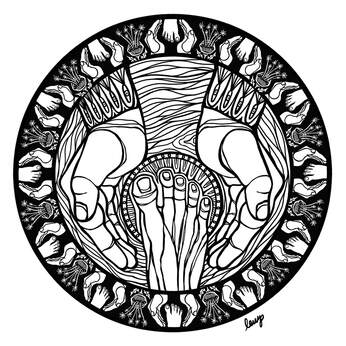 We asked you to go to the Wilderness for Lent, and I wonder how it is going for each of you. I wonder because this is a time of deep spiritual questioning. The wilderness is a metaphor that encourages us to let go of what our expectations of those things that prevent us from fully experiencing God. What are those questions you are wrestling with? Questions rarely come with an easy answer, which is why letting go of what keeps us separate from God and living into our fullest self is a faith journey. Faith can live in the darkness of the wilderness and it can also bring into light the unknown of what we are searching for. To wonder in the wilderness and to wander with our faith, we may struggle to trust God enough to live without absolute certainty about who God is. This is how we slowly begin to understand the nature of God in our lives. I pray that in your wondering, answers to your deepest questions are providing a sense of surprise and awe. Blessings, Carla AuthorIn December, Carla started her two-year designated term pastorate at Plymouth. She spent the last 5 years consulting with churches on strategic planning, conflict transformation and visioning. Before going to seminary she volunteered at her church through Stephen Ministry, visiting ministries and leading worship services at a memory care unit and a healthcare facility. She served on the Board of Directors for the Iowa conference of the United Church of Christ. 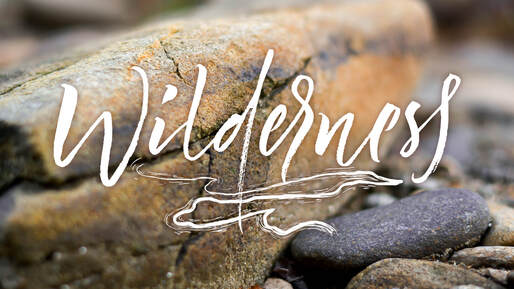 Image: A Sanctified Art Image: A Sanctified Art The season of Lent has two faces: one that is a lead-in to Holy Week, the crucifixion, and Easter; and another that reflects the 40-day journey of Jesus in the wilderness. There are conflicting theories about the origins of Lent, but a 40-day period of daytime fasting (as our Muslim sisters and brothers do during Ramadan) was discussed at the Council of Nicea in 325. In the Reformed Christian traditions (of which we are a part), Lent was abandoned as non-biblical…but we have been trying to reclaim some of the baby that was tossed out with the Reformation bathwater. This year we are working with a Wilderness theme. Wilderness for Jesus was a place of testing and clarifying and preparation for his ministry. Wilderness for us may be a metaphor for wild-ness and the glories (and the threats) of Creation. Wilderness can also be a metaphor for chaos and the unknown. Come and join us this Lent as we worship using Wilderness themes now through April 5 (Palm Sunday).…I guarantee that you’ll hear some new perspectives that will cause some new growth on the branches of your faith. Tomorrow evening, you are invited to a simple soup supper (generously provided by a ministry team under the Deacons) and to a service at 7:00 p.m. If you have never been to an Ash Wednesday service, I’d encourage you to come and give it a try! You might be surprised at how meaningful it is. Also, there are Lenten devotional booklets using the Wilderness theme available in the Fellowship Hall at Plymouth, containing poetry, visual art, reading suggestions from your Bible, and space for your own reflections. May our journey together through the Wilderness bear the fruit of faith. Shalom! AuthorThe Rev. Hal Chorpenning has been Plymouth's senior minister since 2002. Before that, he was associate conference minister with the Connecticut Conference of the UCC. A grant from the Lilly Endowment enabled him to study Celtic Christianity in the UK and Ireland. Prior to ordained ministry, Hal had a business in corporate communications. Read more about Hal. by the Rev. Hal Chorpenning Being part of a congregation makes each of us aware of the transitions of life: births, baptisms, confirmations, graduations, marriages, retirements, and deaths. Being an intentional part of a community of faith exposes us to the exigencies of what it means to be alive. Just by being engaged during Prayers of the People in worship, we tend to hear about and pray for more people experiencing illness or loss than many of our neighbors do. We are in a time of passage for three of our members: John Geter, Ruth Minter, and George Bryan, for whose lives we offer God thanks with the rites of the church, helping provide a ritual marker at the close of this life. Jake led John Geter’s memorial service on March 30, and I hope that you will join us for memorial services for Ruth Minter this Saturday at 11:00 a.m. and for George Bryan on Holy Saturday at 11:00 a.m. When Jane Anne and I arrived in Tokyo at the end of March, a few cherry blossoms were just beginning to emerge from the buds on early-blossoming trees. Viewing the cherry blossoms is a major celebration in Japan called hanami, which dates back centuries when the aristocracy would have viewing parties that included food and drink under the white-and-pink canopy of blossoms. While today thousands crowd into parks and picnic under the trees on blue plastic tarps, the spirit of hanami remains. A woman we met in Tokyo explained the Japanese fascination with cherry blossoms. “The blossoms are with us for only a short time each spring,” she explained. “They burst into bloom and very quickly, they fade, and their petals fly like snow. The cherry blossoms for us are like looking at life: we are born, we live, and we die. It is all part of the process.” We had wonderful travels around Japan with my son, Cameron, and got to spend a few days with him and his wonderful girlfriend, Aki Regan, in Akita Prefecture, where they both teach English. We returned to Tokyo as we concluded our two weeks in Japan, and by then many of the trees were a profusion of pinkish blossoms, though some trees had begun to lose their floral array. As the wind came up, the blossoms swirled through the air like so many large snowflakes, and I felt a sense of melancholy rising up as the season was drawing to a close. I was standing in Yanaka Cemetery in Tokyo when I filmed the video clip below, so the end of life was already present in this place of beauty and remembrance. Our own tradition, though without hanami, acknowledges the transitory nature of life. The first hymn in the New Century Hymnal, “Immortal, Invisible, God Only Wise,” contains these lines: “We blossom and flourish as leaves and as flowers, then wither and perish – but naught dims your powers.” The nature of life is indeed transitory. And our tradition also tells us that in the midst of every transition, the power of God and companionship of the Spirit are within and among us. “In life, in death, in life beyond death, we are not alone,” says the New Creed from the United Church of Canada. As we move into spring in Colorado, and as we walk through the pattern of Holy Week, going from the triumph of Palm Sunday to tragedy of Good Friday to the triumph of Easter, may we each remember that death is never God’s final word. Thanks be to God. Shalom, AuthorThe Rev. Hal Chorpenning has been Plymouth's senior minister since 2002. Before that, he was associate conference minister with the Connecticut Conference of the UCC. A grant from the Lilly Endowment enabled him to study Celtic Christianity in the UK and Ireland. Prior to ordained ministry, Hal had a business in corporate communications. Read more about Hal. Our Mother, this Lent we journey in the desert with you again
to remember our story of faith, and our connection to each other. We are a joyful people, grateful for family, for opportunities to serve each other, for Spring coming again. But we are also an anxious people, a fearful people, a grieving people. We are thirsty. We are hungry. We need your water, waters of healing and comfort, waters of hope, waters of welcome. We need your fruit, fruit of commitment, fruit of determination, fruit of inspiration. We pray for people waiting in actual deserts, deserts of water in the Midwest flooding, and deserts of sand. Searching for a new home, grieving the homes they were forced to leave behind, praying for a new community to welcome them. Help us to remember Jesus' ministry as bringing together all people, calling us to sit together at the same table and be One Human Family. May we live into that vision he gave us by saying together the prayer that Jesus taught us: The Lord’s Prayer... 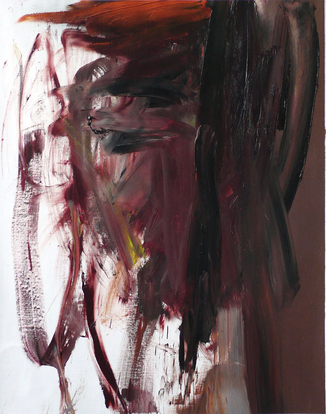 A visual depiction of Bach's Harpsichord Concerto in D Minor, BWV 1052 by Tamás Kopasz (2009) Source: Tkopasz (Wikimedia Commons) A visual depiction of Bach's Harpsichord Concerto in D Minor, BWV 1052 by Tamás Kopasz (2009) Source: Tkopasz (Wikimedia Commons) As an organist, the spring equinox inevitably brings up J.S. Bach, who was born on March 21, 1685. To celebrate, I took to the console and binged on Bach's organ works for about an hour last Thursday. Afterwards, I thought, what is it that makes this music so wonderful, grand, and powerful? One can always point to his masterful contrapuntal writing (considered never surpassed by music scholars), but to me it's much more. It's the intent. Two quotes from Bach sum it up well: “I have always kept one end in view, namely ... to conduct a well-regulated church music to the honor of God.” and “The aim and final end of all music should be none other than the glory of God and the refreshment of the soul.” The Doctrine of the Affects was a popular theory of aesthetics in music during Bach's life. Based on ancient principles of rhetoric and oratory, the composer sought to embody concepts such as joy, sadness, or sorrow into their music through the outward constructs of notes and rhythm. Bach's intent of channeling the divine through his music then was given a viable path to our ears. For myself, playing Bach is always an experience where new ideas for interpretation happen each time I revisit a work of his. And I look forward to those opportunities in the new works I undertake. It is because he has given us all so much to decipher in the notes and rhythms themselves, waiting to be discovered and released. But now on to you, the listener. While music is no doubt subjective, there is a remarkable amount of consistency in our reactions to most music. This Lent I have offered music that is slightly more introspective during this penitential season. Perhaps no one has consciously noticed, but it is true. The big reed stops during the postlude have taken a leave of absence and the choir anthems include more serene and sublime selections, such as the Maurice Duruflé Kyrie on Lent I. All of these approaches signify a new affect in Lent, one that will be soon replaced with the joy and ecstasy of Easter. Music is a potent and reliable partner in our journey through the liturgical year. Bach and generations of church musicians after have understood this but it is nothing if it is not shared with those who wish to listen. Soli Deo Gloria. Mark Heiskanen Director of Music/Organist AuthorMark Heiskanen has been Plymouth's Director of Music since September 2017. Originally from Northeast Ohio, Mark has experience and great interest in a diverse range of musical styles including jazz, rock, musical theatre, and gospel. He is thrilled to serve a congregation and staff that values diversity and inclusion in all facets of life. Read his mostly-weekly Music Minute here. |
Details
|

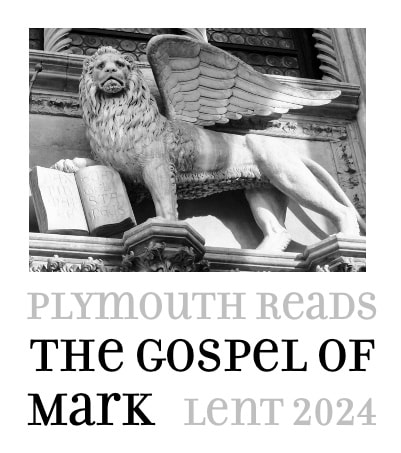








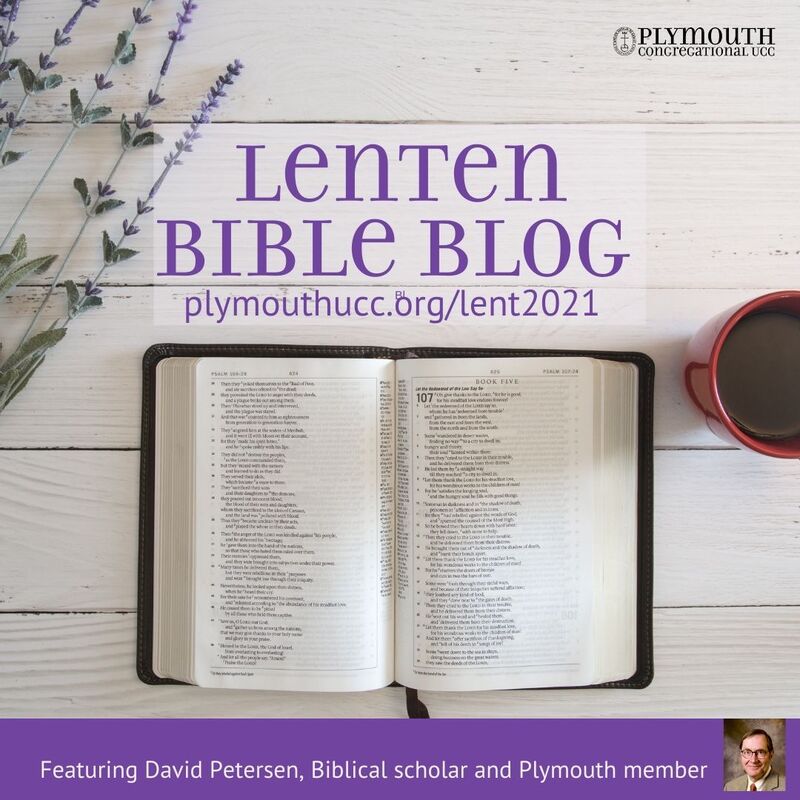
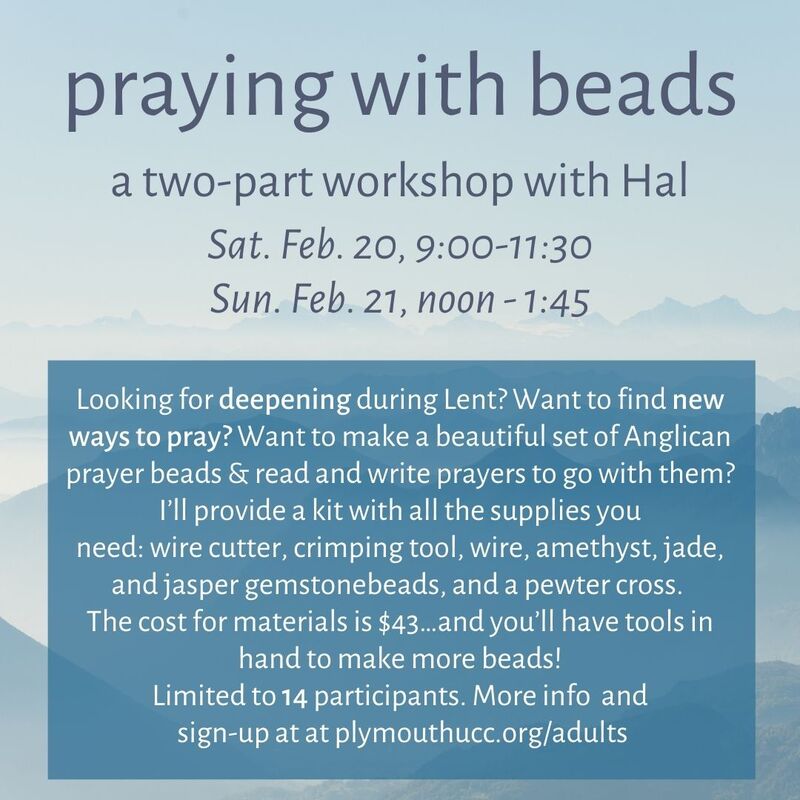

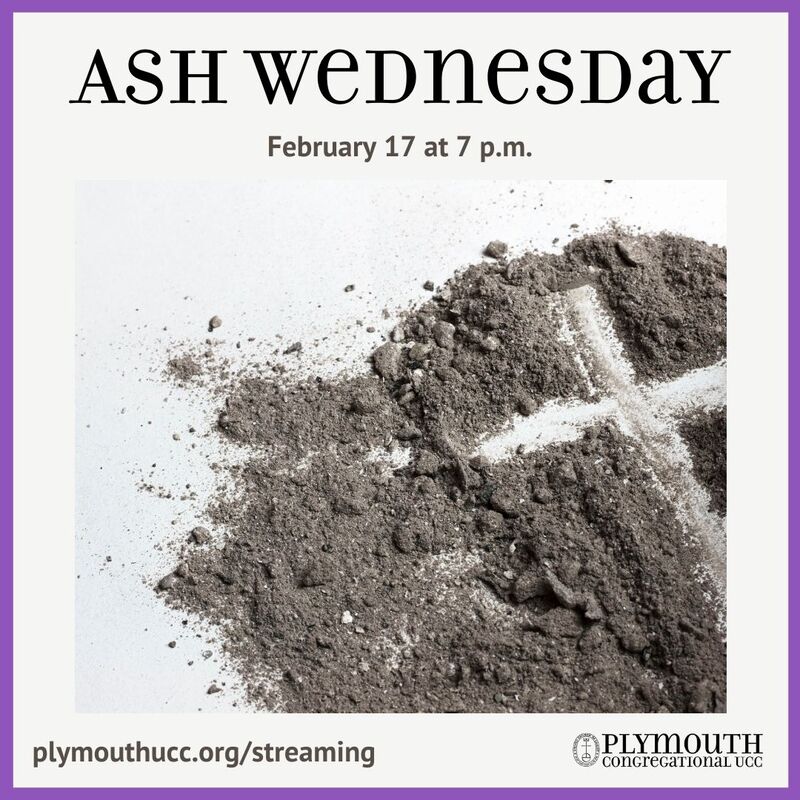

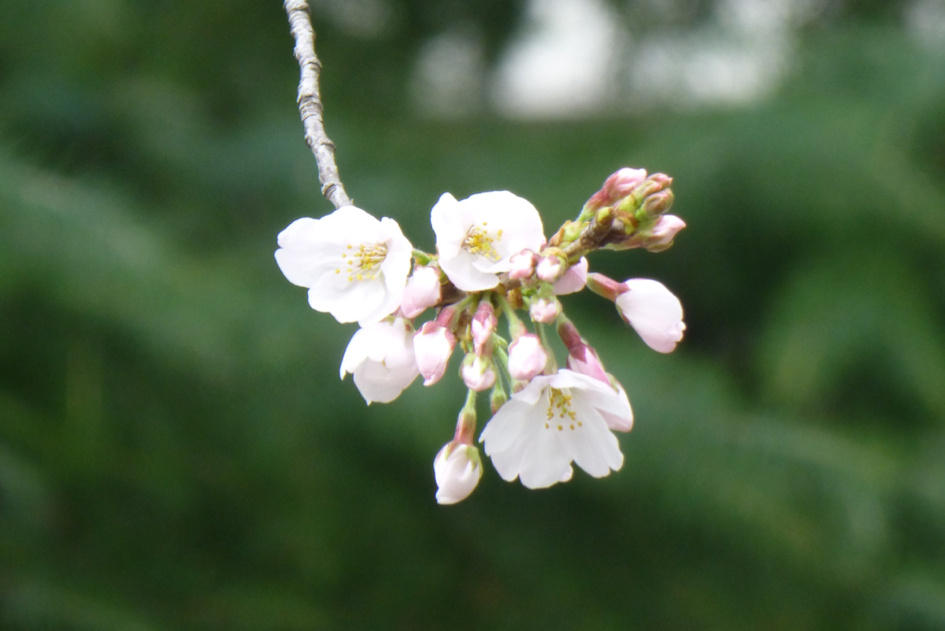
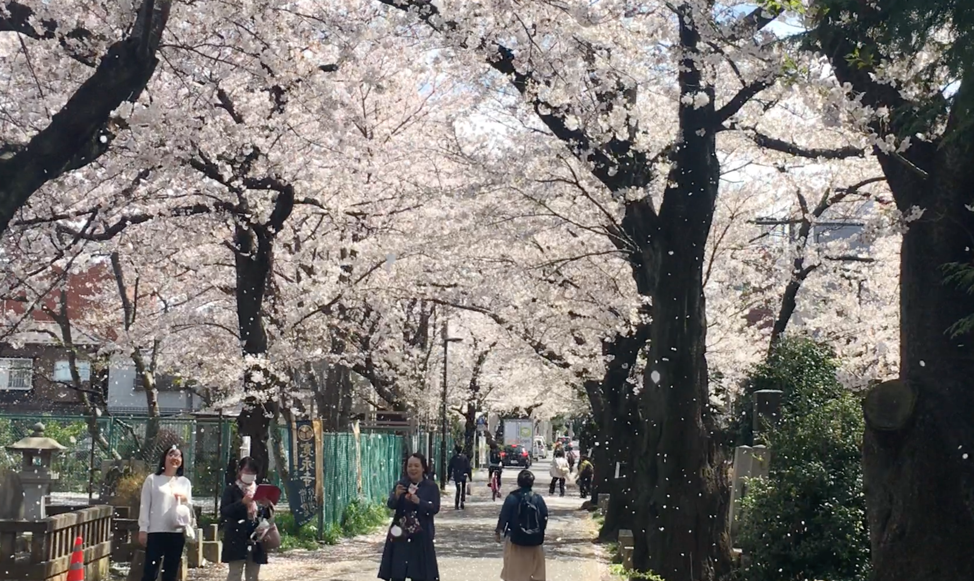


 RSS Feed
RSS Feed